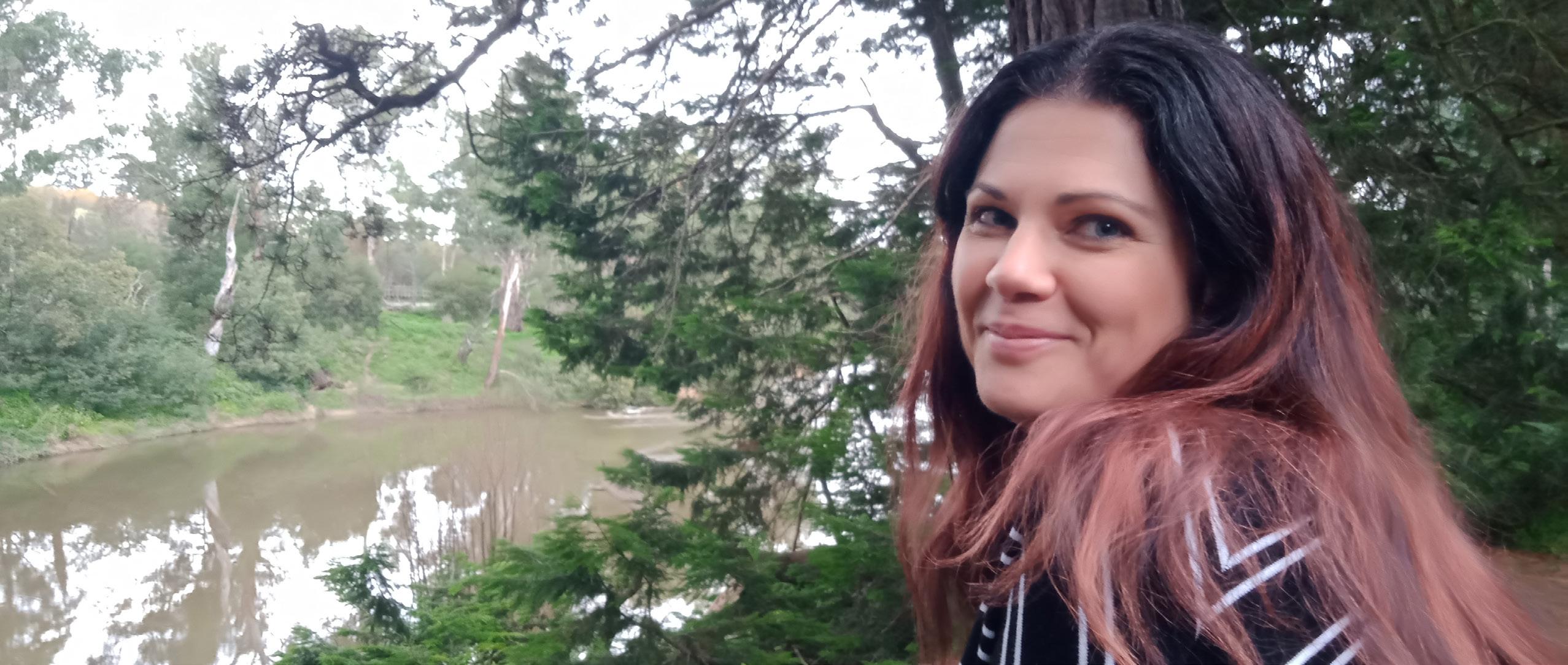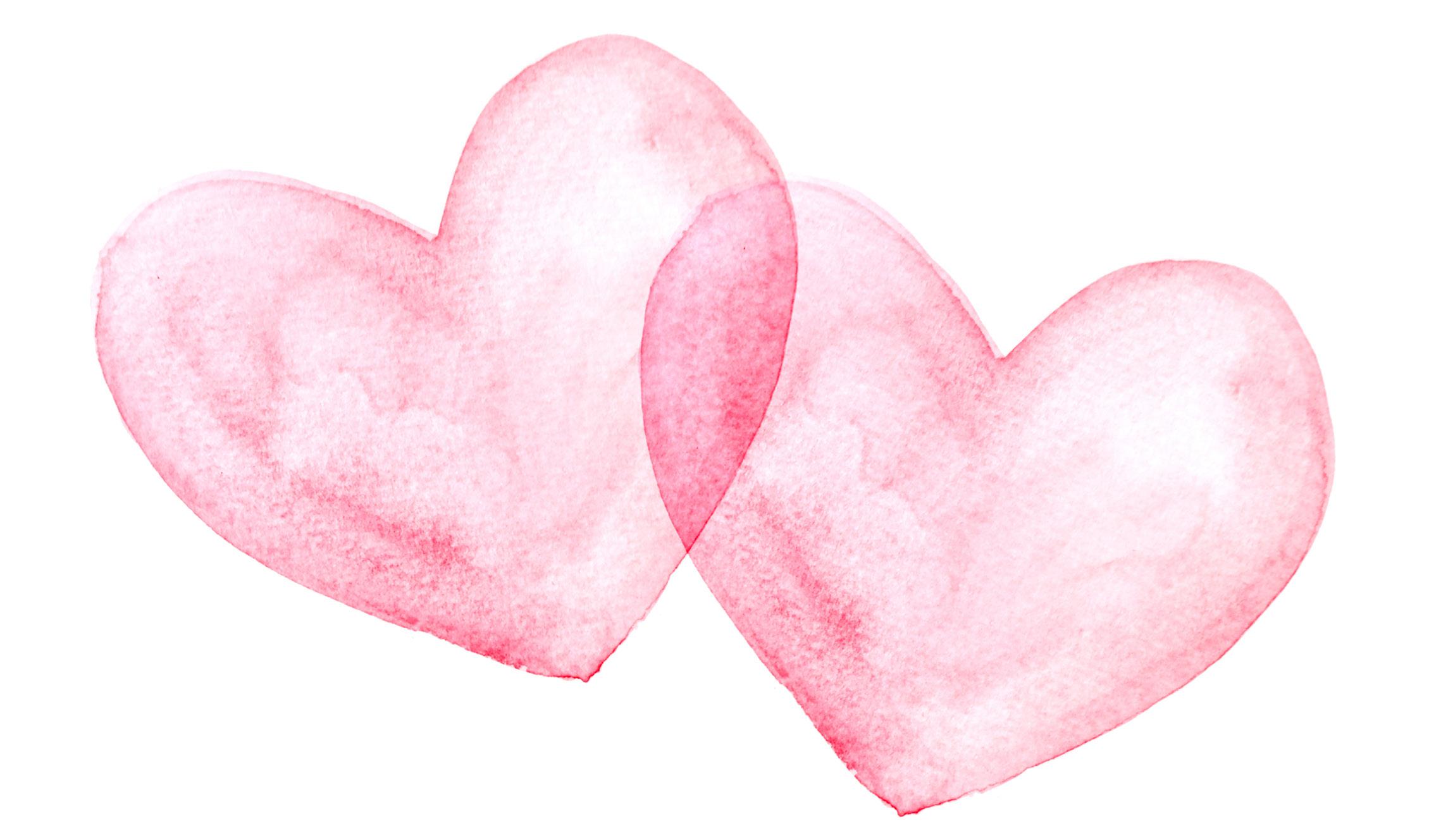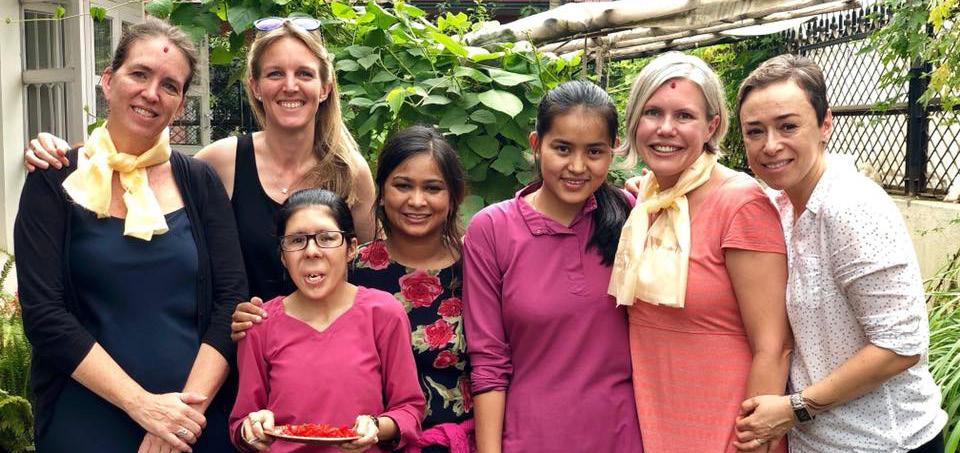
22 minute read
The Relationship Quandary A conscious relationship series
The Relationship Quandary
Ongoing Series
Advertisement
At some point in our life, we’ve all been there right? Navigating the ups and downs of an intimate relationship and doing the best we can to create harmony and lasting connection. Sometimes we get it right, sometimes we don’t. Either way, each experience with a partner or potential partner can bring us an assortment of lessons, learnings, love and yes sometimes, heartbreak.
Each month we will bring you conscious and authentic conversations with singles and couples alike. Discussing with them the answers to some of those important relationship questions we’ve all potentially asked at some point.

“What is key to lasting relationships?”
“What should I look for in a relationship?”
“How do I communicate what I want?”
Intimate Relationships are an imperative aspect of emotional and mental wellbeing in human and spiritual development. So take a journey with us each month to see how others are navigating the relationship quandary.

Meet Rachael Smith
Rachael is a former full figure model and when she is not busy being an advocate for healthy body image, she works as a radio announcer. You can hear her on the Rich and Rach Brekkie Show, Saturday mornings at 88.6 Plenty FM in Melbourne, Australia.
Kim: What has been your history been like with relationships?
Rachael: I tend to attract men who are controlling and have narcissistic tendencies. I think it’s because I’m such an easy-going person, so they’re very drawn to our personality type. We tend to stay in those relationships a lot longer because we think we can heal them; we can save them. That is my nature.
Kim: How long have you been in your current relationship for, and what were you looking for when you met him?
Rachael: I wanted someone, and I’ve told my girls this, it’s so important that someone is your best friend. You’ve got to have that friendship first, you really do. I mean obviously you need that attraction, but attraction and lust and all that can go. You need that slow releasing joy that builds with someone and that comes with friendship and that’s what I’ve learned in my other relationships. They weren’t my best friend; they weren’t my friend.
Kim: Were you looking for all of that in a relationship when you met him? Or did it evolve like that?
Rachael: It evolved absolutely, and also I was looking for someone that would allow that Aquarian in me to be that free spirit gypsy girl too. And also trust, a big one. In my past, relationships didn’t have trust. I trust this man and he trusts me, so we allow each other that freedom because he’s like that too. We can be who we are, and grow who we are as an individual. And it allows us to grow together. Rachael: You just know. You’re attracted energy-wise to them and you can’t even explain it. It’s just this inner knowing where you feel like you’ve known them forever. I had that feeling with him and that’s the only way I can explain it. There was this instant boom and he explains it as a bolt of lightning. It was like “you’re meant to be in my life” and I just knew it.
Kim: How do you want to be treated in a relationship?
Rachael: As an equal. For me it’s about having that balance in your relationship. He laughs because he uses that word back at me a lot in our relationship, it’s all about balance. He’s like “Rachel, we balanced today?” I’m like “Shut up!” [Laughter]
Just treat me equally, because in my past relationships it was like role-playing and I lost who I was. So in this relationship, like I said, that independence and that trust is there so there’s balance too. He’s like “honey I support you” and I want to feel supported, and I feel supportedin this relationship.
Kim: How do you feel most loved by your partner?
Rachael: It’s things like when he makes me a cup of tea and he knows how I like my tea. Or he knows how I only like a bit of vegemite scrape with lots of butter on my toast. Seriously, that’s acts of love for me. They take the time to watch you enough to know what you like and that means they’re attentive. My exhusband didn’t know how to make my cup of tea after 14 years. Ben knew the first week. It’s those things, or he’ll go out and he said “Honey, I noticed that your eyes get really red with mascara, so I’ve got you some vegan mascara that my mum said is really good for people with allergies” and brought me vegan mascara, wow. Or he’ll get me a candle because he’s noticed that I like citrusflavoured. So he gets me a tangerine-coloured one because he saw a photo of me when I was 15 in my tangerine leotards “because
Kim: Do you have a non-negotiable in your relationships?
Rachael: It’s cheating for me. Because once trust is lost, and I think this is something I’m still working on, trust is very hard for me to get back. So I can forgive, but I don’t forget, and once trust is broken for me, I just can’t Kim. That’s just my trigger that I’m still working through.
Kim: How do you communicate your needs?
Rachael: We really talk it out all the time. If we get into an argument we refuse to hang up until we get our calm voice back and end it with “I love you,” every time. So we’ll yell at each other but then we always talk through it and calm down. We go through the stages and always end it with I love you. He always goes “Okay this is good, I feel good, we communicated.” So we always talk it through. I never did that in the past.
Kim: How do you navigate your differences?
Rachael: We give each other space because we have trust. We’re very honest. He’ll say “If there’s something I don’t want to go to, I’m just going to tell you Rach, but you still go” and I’m “Okay, yeah cool.” We’re very honest and straight to the point with each other and we’re independent enough that we know how and what we’ve got together. We support each other and what we need to achieve, like him with his music and me with my radio. We give each other the space to breathe that comes with trust again and communication. Without those things it wouldn’t be that way. So it all goes in together.
Kim: What do you think is a bad example of communication between partners?
Rachael: A bad example is when you’re in relationships where you feel like the other person’s out to prove you wrong instead of coming up with a solution. So you always want to go into it “this is what I’ve learned” and what I do in this relationship is we never go in there to bring each other down. You have your moments, but we consciously don’t want to bring each other down. It’s about finding a solution together and not telling each other “You’re wrong to feel this way” because it’s how you feel. So acknowledge “Okay that’s your truth” you know, not wanting to change someone on how they feel that certain way, and why. Because it’s their truth.
Kim: What do you think is a good example of communication between partners?
Rachael: Exactly what I just said, that’s a good example. Going “All right, we’re in this together. Let’s find a solution” and not break each other down”. It’s like “Okay, how are we going to work through this.” Doing that.
Kim: What’s the most valuable thing about being in a relationship?
Rachael: The most valuable thing; there’s so many! You’re making me think, Kim. The most valuable thing about being in a relationship? For me it’s having that someone that I can just break all those walls down and be completely me with. My partner, he holds me up. I can be so strong for everyone else, but I can I literally fall into his arms and he cuddles me to sleep. Like when I was doing chemo tablets, he laid there for two hours and just cuddled me. It’s when they’re just there for you no matter what. You can just let yourself be there with them.
Kim: What does this quality of relationship, where you have respect and understanding, what does that give to you in your life, what does that give to you as a woman?
Rachael: So this girl, having this kind of relationship compared to my other ones? I haven’t lost myself. I’ve had moments, not completely. But I’ve completely lost myself in other relationships and I didn’t follow my dreams. In this relationship, I have the freedom to go and follow my dreams and I don’t have restrictions like I did in the other ones. There’s a balance.
Kim: So thinking on your past relationships and who you were when you first allowed them into your life. Were you different to who you were when you met this partner?
Rachael: Back then I was a party animal. Alcohol, drugs, you name it, and so I was drawn to my ex-husband because he didn’t do any of those things and it was my only sense of security. I lost myself completely. With my current partner, I’ve gone through divorce, illness, all these things and I just realized that I just want to be with someone that makes me laugh. It’s not so much about the big house or the picket fence anymore. So I’ve gone into this relationship like as I said, I don’t feel like I need to come up with the solution for him. We’re independent in the relationship, but we’re one, together. I just view it all so differently and I won’t let people hold me down anymore either. I’m a lot stronger in this relationship. My sister said to me “This is the most I have ever seen you be yourself with a man.” I don’t have to pretend to be anything with this person except myself, no role-playing.
Kim: Is there anything else that you want to add?
Rachael: I don’t regret any of my relationships because they’ve brought me to who I am, and they’ve brought me into this current relationship. It doesn’t mean that this relationship’s perfect, because in every relationship we have our challenges and we’re constantly learning.
Kim: Last question Rachel, what does love mean to you?
Rachel: That is a tricky question, that’s a hard one isn’t it? Love is, wow, what does love mean to me? Okay, I can only speak for myself. So for me it’s allowing me to be in a relationship, my partner allowing me to be who I truly am because every other partner has tried to change me. Just being with someone who’s not trying to change you, loving someone for who they are. A lot of people go into relationships being drawn to someone because of their brightness and their personality, but then they spend the rest of the relationship trying to change them. So love is not trying to change someone. It’s just loving them as they are on that journey and watching them grow and supporting them in that the best way you can. As well as looking after yourself.

Meet Caiyu Kiora
Caiyu is a ceremonialist, student of sacred medicine and host of the podcast “Birdsong with Caiyuda Kiora”, and the founder of medicinepath. net. Both of which explore the path of shamanism, nature-based spirituality and earth-honouring traditions. Caiyu: Yes, I guess in the context of what I know this conversation is then yes, I’m certainly in a relationship.
Kim: Where were you in your life when this relationship first started?
Caiyu: In a very different place than where I am right now. I now have a two-year-old daughter, and having a child and being in relationship certainly changes things. But on a more personal level I was at a stage where I had started to delve into a lot of selfdevelopment work. That was also the blossoming of my spiritual expansion, so I was still very much exploring what it meant be me. To be perfectly honest, I think that I was still looking to the external to try and fill a lot of places within myself where I felt a void. I think I was certainly projecting that onto this relationship at the very beginning.
Kim: How did that projection play out in both of your lives
Caiyu: It’s a great question. Because I certainly have had a lot of unhealthy behaviours in previous relationships that were largely starting to clear out at the start of this relationship. I think it was a sense of loneliness that has actually been a big puzzle piece throughout my journey and my spiritual journey. This deep sense of loneliness, sorrow and grief has been a very challenging thing to sit with over the years. I wasn’t equipped to go very deeply into that at the start of this relationship. So I think that I was using this relationship in a sense to not feel that loneliness.
Kim: What made you know that this was the relationship to pursue? To know that your partner was the one that you wanted to commit to in your relationship?
Caiyu: I didn’t. It was a gradual unfolding, and the word that’s coming to mind now is choice. I think for me it was coming to the understanding that I have a choice to be in this relationship or not. The honest answer here is having a child. She was pregnant and there was that choice because I was still very resistant in many ways. I certainly didn’t have that commitment to the relationship or that commitment to fatherhood either. It was through the pregnancy journey that my commitment really strengthened. So I’d say that was the time where things really started to solidify and strengthen. Then of course when little bub popped out into the world things were different. It wasn’t just myself and my partner and then we became more of a family unit.
Kim: Did you have any non-negotiables in your relationship on a whole, or even relationships in your past?
Caiyu: What comes to mind for me is of virtuous qualities. There’s ways in which we wish to be treated. What’s coming to mind is something called the golden rule and it’s treat others the way that you want to be treated yourself. Then a step further is the platinum rule which is to treat others with the knowing that they are yourself. And this is the recognition that we’re all connected beyond our seemingly individual personalities and identities. To be able to see ourselves in the eyes of another is a very powerful mode of perception. How we would want to be treated ourselves is how in turn we would treat someone else. So I’m talking virtual qualities like understanding, compassion, patience, forgiveness, open and
clear communication. We all want to be heard, so knowing how to listen and be present honestly in a way that is constructive. I guess I went on a tangent to say that a red flag would tend to fall into what I might consider to be the opposite of these virtuous qualities, of how we might like to be treated within our relationships
Kim: Has your relationship been easy?
Caiyu: Well no, I don’t think the relationship has been easy. There are certainly times where it has been challenging. And perhaps that’s an inherent quality within any relationship. As we are always changing and evolving ourselves and we’re in relationship with another being, that is always changing and evolving. So it’s inevitable that there is going to be conflict. For me it’s about having the willingness to step into the discomfort and find ways to navigate the relationship with all of its beauty and bliss. Then all of its challenges and discomfort in a healthy and harmonious way
Kim: When you’re going through a difficult time together, how do you navigate that and handle your arguments?
Caiyu: I feel there is an importance of having a deeper understanding, seeing each other as one and the same. But it’s also having the understanding of the differences and our uniqueness, and the kind of polarities that would exist within relationships. Some of those differences might tie into love language and attachment styles. For example, how you express and love or the way we like to receive love.
I guess it’s just having an understanding of ourselves and what our partner resonates with. The complexities, who we are as people, and then having that understanding. Then perhaps mutual respect and clearer communication can unfold and evolve between the two people. That’s certainly one of the ways that we have approached it. Having these understandings of our differences, and it’s not something that just comes. It’s something that evolves as we ourselves evolve. We have our own shadows and our triggers, and I think again it just comes down to the golden rule and the platinum rule.
Kim: How do you ask for what you want your relationship?
Caiyu: Well the very simple answer is with words. I merely ask in a way that is not demanding. The word expectation is coming to mind for me. While we do carry expectations, and they are an inherent part of relationships and life to varying degrees. There’s the old proverb which says that expectations pave the path to disappointment. If we’re expecting something or attached to one particular outcome or desire, there can be resistance to whatever it is that is unfolding. So I think being able to just ask from the heart, finding ways to be honest about what we want without being destructive. Being constructive, having that mutual respect. But not having any expectations that my partner, or anyone else for that matter, is actually going to be able to fulfill what it is that I’m requesting.
Kim: How do you communicate to your partner if you feel that your needs are not being met?
Caiyu: I certainly noticed the pattern if my needs are not being met. The challenge for me is being able to actually come to a place where I can express that my needs are not being met. Being able to get out of my own egoic sense of self and really ask for what it is that is not being met. Or rather, express what it is that I feel is not being met. With the potential for it to be met, because I know that it’s a thread for myself and for a lot of other men as well. Being able to speak and feel and really embody those deeper emotions, and that certainly ties into it for me.
Kim: What do you value most about your relationship?
Caiyu: There are a lot of things that I value about our relationship. What I’m reflecting on is the difference between what do I value in my partner, and what do I value in the relationship. While my partner has a lot of virtuous qualities to her that I really value, the thing that I value most about this relationship is that it’s such a great container for growth for myself. And that often comes in the most subtle of ways. It allows me to cultivate greater awareness to the subtleties of life and the subtleties of relationships. Of course, there are sometimes big profound lessons that come within relating with someone else. But I think it’s the little subtle ways that we’re both growing together, and the relationship is growing. Then having our little bub involved in the greater unfolding as well.
Kim: What do you feel makes a successful relationship?
Caiyu: To answer this, I feel as though I would probably summarize a lot of the points that I have brought up at this stage already. Understanding of our similarities, our differences, to know or to clarify our own values, our own boundaries, our own vision for life. But then also to understand the other side of the equation as well. How that forms a mutual or a shared vision, and our shared values and the shared path forward. How we both want the relationship to evolve and what we are hoping to get out of it.
I think for me it comes back to connection to the path of the heart and soul. It’s ultimately a maturation and an integration of mind-body-soul. We want to be reasonable. We want to have healthy functional beliefs. We want to be embodied, connected to our feelings and our emotions. Connected to our hearts. There’s the deeper connection to what we find meaningful and purposeful in life, and this is also a path of finding what our own unique gifts and medicine is. How we’re being in service to the world in a way that speaks to being in alignment or right relationship to our planet and nature. I don’t necessarily think that we have to have all of these things in place to have a healthy functioning relationship. But perhaps I’m having an understanding of some of these other elements of path of heart and soul, and the way we walk it in our own unique way, and how our partner is walking it. I think it certainly adds value to any relationship and the way that it might blossom.
Kim: Last question Caiyu, what does love mean to you?
Caiyu: What does love mean to me? Well, in one sense love means everything to me. Some of the greatest spiritual philosophers say that the underlying wave of creation of this entire cosmos is love and beauty. So to be able to walk this path of life and keep coming back to heart and keep coming back to love. To be able to try and love self and other as much as possible. That’s certainly the path that I find myself on. I’m trying to think if there is anything that holds greater weight or greater meaning than love. I think perhaps at the core of everything, it always comes back to love.
Giving Hearts
Meet three women creating massive impact and change in the world
IMAGES © SARINRA / Adobe Stock

Many of us dream of living in a better world. We notice what is wrong or what could be better. We knowledge it and sometimes even open our hearts (and purses) to give to the causes we believe in the most.
And then there are the people that truly take the need for change to heart. They not only dream of living in a better world, their purpose is to take action to make it so in their own unique way.
They pull on their courage. They gather their resources. They stand up for what they believe is right and commit to whatever cause touches their heart. Even if they have to found and establish that cause themselves.
We were lucky to interview three such women creating meaningful change in the world. Each of their stories are inspiring and certainly touched our heart strings, and we hope that they manage to touch yours too.
Meet Stephanie Woollard, Mandy Richards, and Carol Miller. Incredible women with powerful storied and causes to share.
IMAGES © Stephanie Woollard personal collection

Seven Women: An interview with Stephanie Woollard Visit Website HERE
Stephanie Woollard started Seven Women because Stephanie wanted to make something lasting and she wanted to have a positive impact on the lives of sustainable, too. disadvantaged women in Nepal and around the world. In her 15-year journey and 36 trips to Nepal, Stephanie The motivation behind Seven Women has been less has helped over 6000 women be educated, trained and about profit and more about creating jobs for women. employed. Her journey has been one of compassion, The vision is to identify more leaders in communities so courage and innovation. We interviewed Stephanie that more women can be reached. A ripple effect has about the inspiration behind the cause, what they do to taken place where women who have been educated and make a difference, and how everyone can get involved. are earning money are now leading other women to do the same. It’s a deeply community-centred enterprise During a trip to Nepal, Stephanie had a simple encounter founded on the belief that we all have the potential to that would become a pivotal moment in her journey. create and earn a living. After walking through the back streets of Kathmandu, she happened upon a disabled woman who was carrying Setting up factories, and making their practices more a heavy load. Stephanie decided to help the woman sustainable has been challenging, but the challenges and she was led back to a tin shed where a group of have been met with love, perseverance and the lasting women were making candles to sell at the local market. desire to keep working to make things better. The There were 7 women, all working around an ancient manufacturing business, the cooking school (which is candle mould, and they all had a disability. It was an attended by 150 people from around the world daily), eye-opening experience for Stephanie and, with her last and the newly opened guesthouse continue to evolve $200, she paid two trainers to teach these women how and grow. to make other products. Stephanie brought the products back to Australia to sell and, thus, Seven Women was “Persistence, commitment and backing yourself is the born. first step.”
“I think the human potential is in all of us…the mind is a critical factor and to understand that we all have this incredible life force that we can tap into that can do everything for us.”
Stephanie realised that the organisations that are empowering people and building capacity are the ones that are the most sustainable. These organisations are creating incredible transformations by making lasting change, something that goes well beyond simple handouts. Handouts can create a dependency, or even corruption, which is the opposite of empowerment. If you want to get involved and support this cause, there will be an online cooking class to raise money for those in need of food and support. You can also sponsor the education of girls from remote villages. Currently, Stephanie is building a global network called the Seven Continents Council. The vision is to see humanity free and thriving in their full self-expression and co-create a better future by bringing a global community together.



